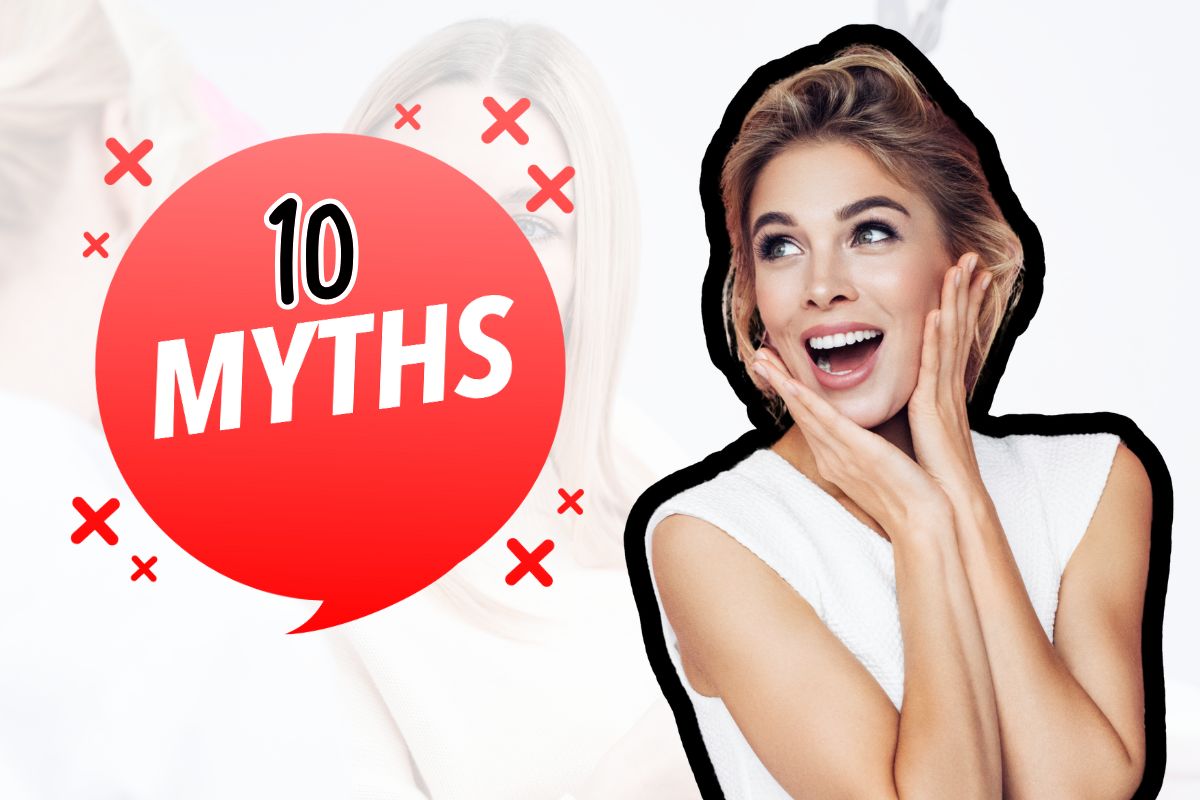10 Beauty Myths Debunked by Dermatologists: What You Really Need to Know

In the age of the TikTok tutorial, Instagram influencer, and DIY beauty hacks, beauty tips spread faster than ever. But not everything spreads for a good reason. In fact, several popular beauty tips are myths—harmless, or perhaps even dangerous. Dermatologists have been separating truth from fiction for decades, and it’s time we took their advice. Let’s strip away some of the most persistent beauty myths and see what actually works for your skin.
Myth 1: “If It Burns, It’s Working”
Not only is this untrue—it can be dangerous. A burning or stinging sensation created by products applied to the skin causes many to assume that the product is working. Dermatologists emphatically disagree.
Fact: A slight stinging from active ingredients like vitamin C or AHAs is normal, but burning is a red flag. Most of the time, it indicates that the skin is inflamed, allergic to something in the product, or compromised in some manner. If something burns, wash it off immediately and discontinue use.
Myth 2: “Toothpaste Shrinks Pimples”
Generations have shared this trick, but dermatologists discourage it.
Reality: Toothpaste includes drying agents like baking soda, hydrogen peroxide, and menthol—yet also foaming agents and abrasives that cause redness, irritation, and even chemical burns. Replace it with acne products containing salicylic acid or benzoyl peroxide.
Myth 3: “You Don’t Need Sunscreen on Cloudy Days”
Everyone avoids using sunscreen on cloudy days or during winter, believing UV light is not a problem.
Fact: Up to 80% of UV radiation penetrates through clouds. Daily sun damage and exposure—yes, even through windows—is cumulative and can lead to premature aging and skin cancer. Dermatologists recommend applying broad-spectrum SPF 30 or higher daily, rain or shine.
Myth 4: “It’s Okay to Sleep in Your Makeup”
You can just crash after a long day without taking off your makeup. But this can be bad news for your skin.
Fact: Wearing makeup to bed clogs pores, confines oil and dirt, and prevents skin from regenerating overnight. Breakouts, dullness, and even eye infection may ensue. A quick wipe with micellar water or a light wash is all it takes to keep your skin in check.
Myth 5: “Not Washing Your Face Causes Acne”
Cleanliness is essential, yes, but acne isn’t so easily explained.
Myth: Failing to wash your face leads to buildup. While neglecting to clean your face can result in buildup, it’s not the main culprit. Excessive washing, on the other hand, dries out the skin and exacerbates acne.
Myth 6: “Coconut Oil Is Great for All Skin Types”
Coconut oil is being hailed as a miracle moisturizer, but it’s not ideal for every skin type.
Myth: Coconut oil is comedogenic, or pore-cloggic, and will bring on breakouts—oily skin or acne-prone skin especially. While it may be fine for dry skin, derms warn against using it on the face without caution.
Myth 7: “You Need to Switch Skincare Products Often”
There are some who believe that skincare products stop working after a certain time and need to be switched out.
Truth: If your product works well for your skin, do not change. Skin changes may require some change, but remain consistent. Constant changing of products can disrupt the balance of your skin and irritate it.
Myth 8: “More Products = Better Results”
Stacking multiple serums, toners, and creams may be an easy solution to flawless skin—but it can lead to catastrophe.
Truth: Overloading your skin can clog, irritate, and cause interactions. Dermatologists recommend a simple routine: cleanser, moisturizer, sunscreen, and active treatments as needed. Less is more.
Myth 9: “Toners Are Needed for Acne-Prone Skin”
Toners are generally promoted as a must for oily or acne skin, but their usefulness has yet to be demonstrated.
Truth: Many toners contain alcohol, which can strip the skin and cause dryness. Unless formulated with gentle, hydrating ingredients, toners are not necessary. Focus on proven acne treatments like salicylic acid or retinoids.
Myth 10: “You Don’t Need Retinoids Until You’re 50”
Retinoids are often associated with anti-aging, leading some to believe they’re only for mature skin.
Truth: Retinoids treat acne, lines, and texture—and can be effective at any age. Starting in your 20s or 30s can prevent aging signs and improve general skin well-being. Always consult with a dermatologist before starting retinoids, especially if you have sensitive skin.
Final Thoughts
Thriving in the beauty world can be intimidating, but dermatologists offer a balanced, science-driven approach. And by debunking these myths, we’re empowering ourselves to make informed choices that really benefit our skin.
The next time you’re hearing a skincare tip that sounds too good to be true—hey, guess what, it likely is. Trust your skin to the experts, not the trends.

